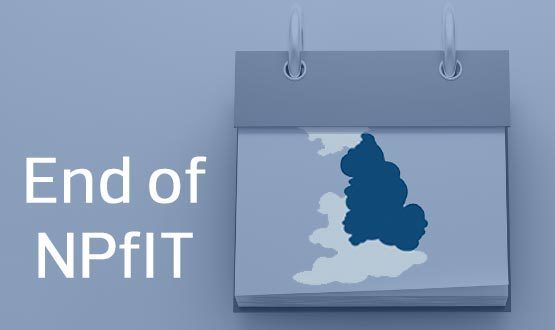National Programme for IT ends, but not for everyone
- 11 July 2016

The National Programme for IT has finally come to an end, although the bill for the enormously expensive and controversial project will continue to be paid for years to come.
The deadline to exit NPfIT national contracts in the North, Midlands and East passed on 7 July, marking the end of the final chapter of the £12.7 billion attempt to bring the NHS into the digital age.
Trusts in these regions should have now signed new local contracts but most have opted to simply stick with those services that were deployed under the national contracts with United States-based company CSC.
In a final move before the July deadline, four additional trusts have also applied, and will likely receive, extra Department of Health funding to deploy Lorenzo, the electronic record CSC planned to roll-out across the NME before running into development and deployment troubles.
That means 15 trusts will now receive additional central funding to deploy Lorenzo for years to come, with some of these contracts stretching out until 2022.
Health and Social Care Health Information Centre figures show that of the 782 systems deployed across 223 organisations under the NPfIT in the NME, 64 % were being retained under new local contracts.
In acute trusts this was mostly mix of older iSoft systems originally deployed as “interim” measures, such as the i.PM patient administration system, the i.CM clinical suite and related products such as the Ormis theatre system.
Only 15 % of IT services were dropped in favour of a replacement, and the rest were retired or replaced following organisational changes, such as trust mergers.
Nic Fox, HSCIC provider support director, said the motivation behind sticking with the status quo would vary from trust to trust. But it was likely a combination of the systems still working well and the massive shift need to move to a new platform.
“Those systems have not stood still in the meantime. They have continued to be improved,” he said. “A number of organisation are happy and content with that service.”
The GPs in the NME too have generally stuck with what they gained under the NPfIT, namely TPP’s SystmOne, with only 1% of the 2,036 systems switched to another supplier.
But while most organisations have proactively chosen to stick with the status quo, a handful of trusts have missed the deadline to exit the NPfIT altogether.
Seventeen organisations, managing 30 IT systems, had not found an alternative to NPfIT contract by the July deadline. This was higher than predictions in February that 15 deployments would not have been shifted off the national contracts in time.
Fox said most of the latecomers were planning to move to a new EPRs but hadn’t quite made the move. “For that small number, some are going through the transition to other systems,” he said.
“So we are giving them a bit more breathing space.” These systems would continue on NPfIT contracts, with no loss of service, but the trusts would have to meet this expense locally, he said.
This is contrast to the HSCIC’s position in October last year, when the regions’ NHS IT directors were warned that “this will not be a safe place to be on 8 July, if we do not get this right”.
The NPfIT was launched more than a decade with a huge war chest and grand palns to revolutionise technology in the NHS but stuttered to stop amid delays, slashed budgets, a stream of damning investigations and even legal action.
In a final reckoning of the programme in 2013, the Department of Health found that the total expected cost of the programme would £9.8 billion.
The department predicted that £10.7 billion in benefits could be realised eventually but at the time on £3.7 billion of actual benefits had been identified.




